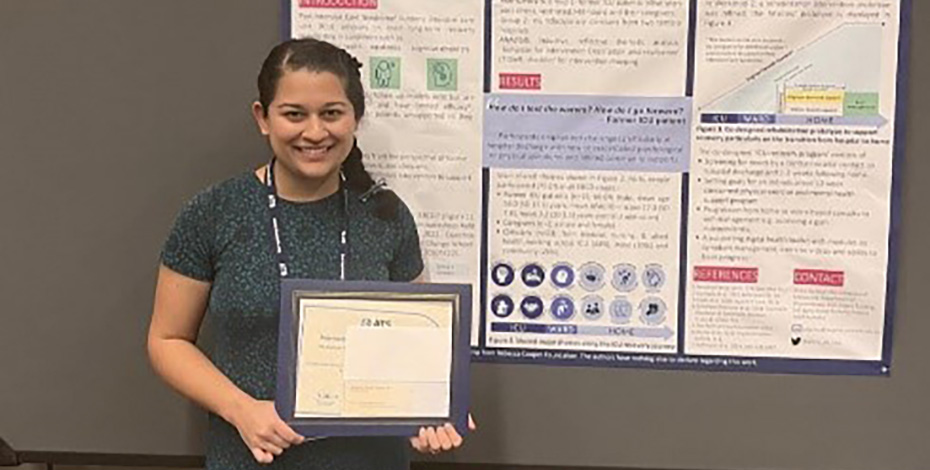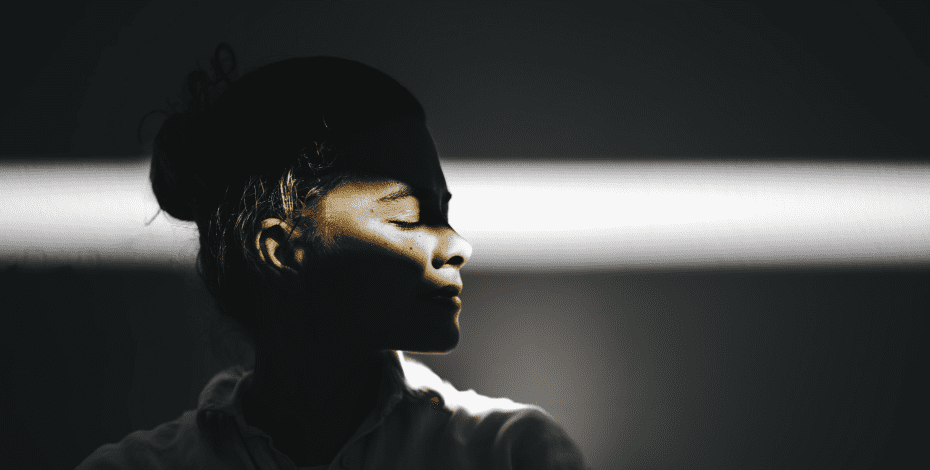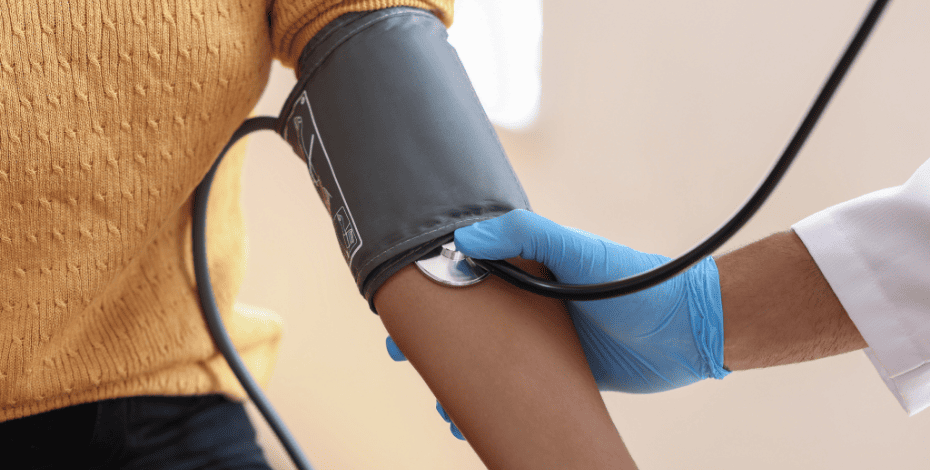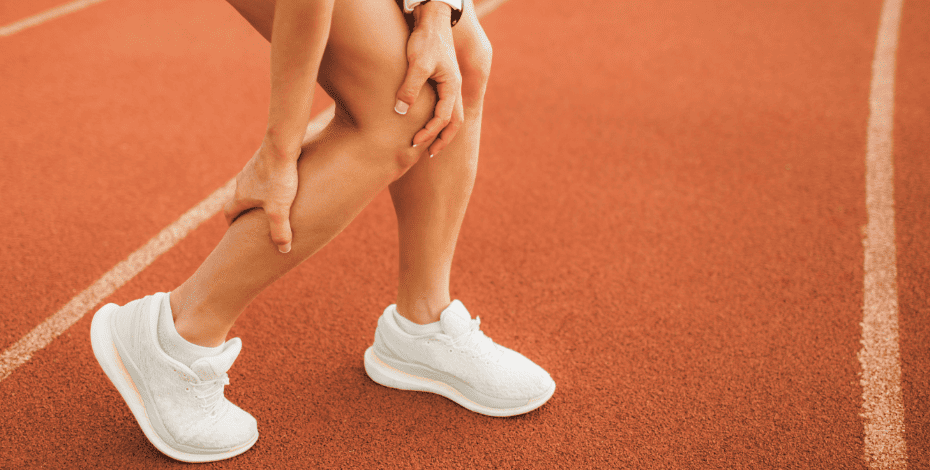
Insights into ICU models of care in the US

In April last year, Victorian physiotherapist Alisha da Silva was given news that brightened what had been a pretty terrible week. While isolating at home with a nasty bout of COVID-19, Alisha was told that her application for a Felice Rosemary Lloyd Scholarship had been successful.
Standing on stage at one of the largest respiratory conferences in the US to present her research work, Alisha da Silva APAM had to pinch herself.
Alisha had thought she’d be in the audience.
Instead, she was giving an oral presentation of her PhD research work on improving long-term outcomes for intensive care unit (ICU) patients, having submitted an abstract without expecting it to be accepted.
As the recipient of a Felice Rosemary Lloyd Scholarship for physiotherapists, Alisha elected to travel to the US in May this year to meet with researchers and clinicians with experience in ICU recovery and to attend the American Thoracic Society’s international conference in Washington, DC.
The trip was an unusual opportunity for the part-time Grade 3 research physiotherapist at the Royal Melbourne Hospital and part-time PhD candidate in physiotherapy at the University of Melbourne.
Exposure to international clinicians, researchers and conferences is something generally beyond the financial capabilities of postgraduate students.
As a developing researcher and clinician in Australia, Alisha found that the benefits of her month-long scholarship trip to the US were twofold.
She was able to generate some potential future collaborations with international clinicians and researchers and she also garnered useful feedback on her research, which looks at ICU survivors—along with their caregivers and clinicians and their experiences of ICU recovery— and aims to increase knowledge and awareness of post-intensive care syndrome among healthcare professionals.
‘The conference was a lot bigger than I expected.
'When you read about how many attendees are there, you can’t visualise it until you get there and see the volume of research, posters and concurrent sessions.
'It was a bit overwhelming,’ Alisha says.
‘There was a lot going on in those four conference days.
'It was a great experience because there was a mix of people at my level and then really experienced researchers as well.’
For her presentation at the conference, Alisha was given two awards—an International Trainee Scholarship and an Abstract Scholarship.
Her abstract was also published in the American Journal of Respiratory and Critical Care Medicine and she presented her research to the Cleveland Clinic’s rehabilitation team and at the 13th International Meeting of Physical Medicine and Rehabilitation in the Critically Ill in Washington, DC.
Alisha’s travel itinerary included visits to many hospital ICUs and ICU follow-up services, where she got to see firsthand the similarities and differences between care for patients throughout their hospital journey in Australia and the US, noting that they also face some similar challenges.
‘I work at the Royal Melbourne Hospital, which is a major ICU centre for Victoria with a mixed caseload.
'However, in the ICUs that I saw over there [in the US], given the population, they had lots of specialised wards—they’ll have a medical ICU, a neurosciences ICU, a general medicine ICU.
'They have very specific ICUs, which is less common in Australia.
'You see highly specialised clinicians working in a specific area such as the neuro ICU; they’re a full-time neuro ICU physio.
‘They also have additional clinicians in ICU such as occupational therapists and respiratory therapists.
'I can see the benefits to these models of care but I’m proud that ICU physiotherapists in Australia are both early mobility experts and involved in cardiorespiratory interventions’, Alisha says.
‘In America there are also a lot of ICU follow-up clinics.
'The focus of these clinics and the eligible patients is very variable. It’s quite interesting in that regard.
‘You hear about the challenges with the health insurance system in America but you could see that clinicians were trying to do the best they could despite these limitations.
'It was good to see how passionate they were about healthcare,’ Alisha says.
‘I also thought it was interesting to learn about the lengths to which people went to complete their research.
'I think I’m very lucky; I have a research physiotherapy position at a hospital, which is not as common over there among the people I met.
'Many clinician researchers in the US do it in their own time, outside work hours due to their clinical caseload or they have to have successful grant funding to have protected research time.’
Alisha says the trip has reinvigorated her drive to work on her PhD.
She is now setting her sights on building up some online toolkits to support ICU patients and their families through post-intensive care syndrome and recovery at home.
A lasting memory of Felice
The Felice Rosemary Lloyd Scholarship is open to physiotherapists who wish to travel overseas or within Australia for post-graduate study or to gain professional experience.
It offers up to $10,000 to an Australian physiotherapist aged under 35 years within five to 10 years of their graduation.
Brian Lloyd established the trust in memory of Felice, his late wife who died in 1954 aged 27.
Since 1985, scholarships have been distributed annually to physiotherapy students with the same intent as Felice—to seek overseas experience in their field.
Application forms and guidelines can be downloaded here from the Equity Trustees website or call 03 8623 5325 for more details.
© Copyright 2024 by Australian Physiotherapy Association. All rights reserved.





